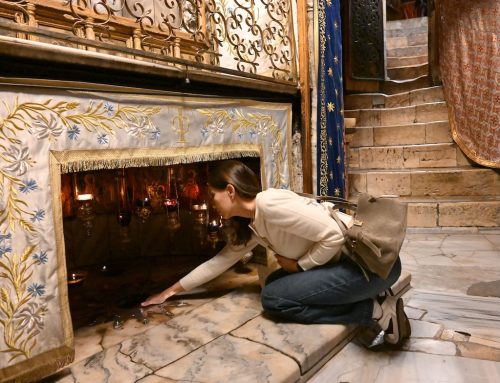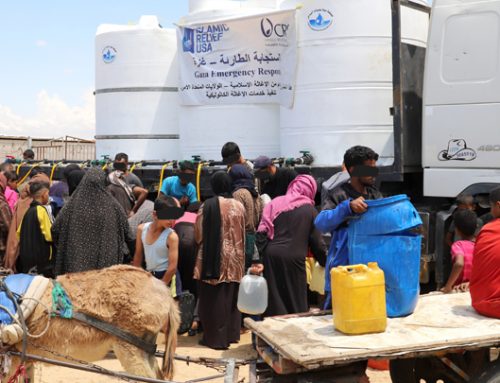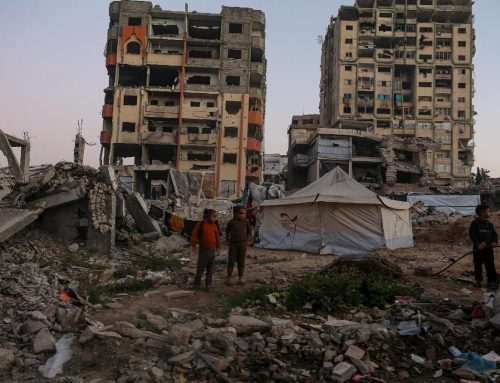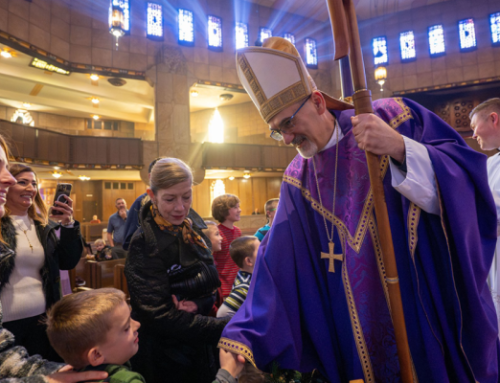In the Incarnation, the Son of God, of one being with the Father, became Man and received a body from the Virgin Many. And now, on the night before his death, he says to his disciples; “This is my Body, which will be given for you”.
1. This is my Body”. Gathered in the Upper Room, we have listened to the Gospel account of the Last Supper. We have heard words which emerge from the depths of the mystery of the Incarnation of the Son of God. Jesus takes bread, blesses and breaks it, then gives it to his disciples saying: “This is my Body”. God’s covenant with his People is about to culminate in the sacrifice of his Son, the Eternal Word made flesh. The ancient prophecies are about to be fulfilled. “Sacrifices and offerings you desired not, but a body you have prepared for me. . Lo, I have come to do your will, O God” (Heb 10;5,7). In the Incarnation, the Son of God, of one being with the Father, became Man and received a body from the Virgin Many. And now, on the night before his death, he says to his disciples; flesh. The ancient prop2This is my Body, which will be given for you”. It is with deep emotion that we listen once more to these words spoken here in this Upper Room two thousand years ago. Since then they have been repeated, generation after generation, by those who share in the priesthood of Christ through the Sacrament of Holy Orders. In this way, Christ himself constantly says these words anew through the voice of his priests in every corner of the world.
2. “This is the cup of my Blood of the new and everlasting covenant; it will be shed for you and for all, for the forgiveness of sins. Do this in memory of me”. In obedience to Christ’s command, the Church repeats these words each day in the celebration of the Eucharist. Words which rise from the depth of the mystery of the Redemption. At the celebration of the Passover mea in the Upper Room, Jesus took the cup filled with wine, blessed it and gave it to his disciples. This was part of the Passover rite of the Old Testament. But Christ, the Priest of the new and eternal Covenant, used these words to proclaim the saving mystery of his Passion and Death. Under the appearances of bread and wine he instituted the sacramental signs of the Sacrifice of his Body and Blood. “By your Cross and Resurrection, you have set us free. You are the Saviour of the world”. At every Holy Mass, we proclaim this “mystery of faith”, which for two millennia has nourished and sustained the Church as she makes her pilgrim way amid the persecutions of the world and the consolations of God, proclaiming the Cross and Death of the Lord until he comes (cf Lumen Gentium, 8). In a sense, Peter and the Apostles, in the person of their Successors, have come back today to the Upper Room, to profess the unchanging faith of the Church: “Christ has died, Christ is risen. Christ will come again”.
3. In fact, the First Reading of today’s Liturgy leads us back to the life of the first Christian community. The disciples “devoted themselves to the Apostles’ teaching and fellowship, to the breaking of bread and the prayers” (Acts 2:42). Fractio panis. The Eucharist is both a banquet of communion in the new and everlasting Covenant, and the sacrifice which makes present the saving power of the cross. And from the very beginning the Eucharistic mystery has always been linked to the teaching and fellowship of the Apostles and to the proclamation of God’s word, spoken first through the Prophets and now, once-and for all, in Jesus Christ (cf. Heb 1:1 2). Wherever the words “This is my Body” and the invocation of the Holy Spirit are pronounced, the Church is strengthened in the faith of the Apostles and in the unity which has the Holy Spirit as its origin and bond.
4. Saint Paul, the Apostle of the Nations, saw clearly that the Eucharist, as our sharing in the Body and Blood of Christ, is also a mystery of spiritual communion in the Church. “We, many though we are, are one body, for we all partake of the same bread” (1 Cor 10; 17). In the Eucharist, Christ the Good Shepherd, who gave his life for the sheep, remains present in his Church. What is the Eucharist, if not the sacramental presence of Christ in all who share in the one bread and the one cup? This presence is the Church’s greatest wealth. Through the Eucharist, Christ builds up the Church. The hands which broke bread for the disciples at the Last Supper were to be stretched out on the Cross in order to gather all people to himself in the eternal Kingdom of his Father. Through the celebration of Eucharist, he never ceases to draw men and women to be effective members of his Body.
5. “Christ has died. Christ is risen, Christ will come again”. This is the “mystery of faith” which we proclaim in every celebration of the Eucharist. Jesus Christ, the Priest of the new and eternal Covenant, has redeemed the world by his Blood. Risen from the dead, he has gone to prepare a place for us in his Father’s house. In the Spirit who has made us God’s beloved children, the unity of the Body of Christ, we await his return with joyful hope. This Year of the Great Jubilee is a special opportunity for priests to grow in appreciation of the mystery which they celebrate at the Altar. For that reason I wish to sign this year’s Letter to Priests for Holy Thursday here in the Upper Room, where the one priesthood of Jesus Christ, in which we all share, was instituted. Celebrating this Eucharist in the Upper Room in Jerusalem, we are united with the Church of every time and place. United with the Head, we are in communion with Peter and the Apostles and their Successors down the ages. In union with Mary, the Saints and Martyrs” and all the baptized who have lived in the grace of the Holy Spirit, we cry out: Marana tha! “Come. Lord Jesus!” (Cf. Rev 22 17). Bring us and all your chosen ones, to the fullness of grace in your eternal Kingdom. Amen.





